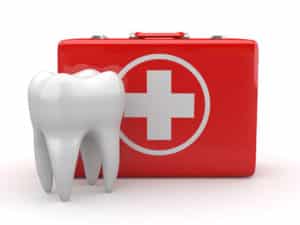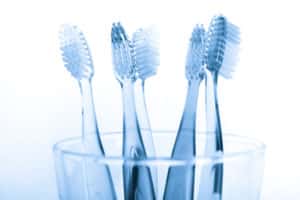 Do you feel anything but motivated when it comes to setting up dental care for your smile? We know as dental professionals that this hesitancy can come from a vast number of places. Maybe you’re worried about keeping yourself calm and relaxed during visits (we can help with that). Or, maybe you haven’t been very focused on your smile for the past few years, so you feel shy about letting us see your smile (you shouldn’t be). Let’s cover a few helpful ways to get over the concerns and motivate yourself to come on in.
Do you feel anything but motivated when it comes to setting up dental care for your smile? We know as dental professionals that this hesitancy can come from a vast number of places. Maybe you’re worried about keeping yourself calm and relaxed during visits (we can help with that). Or, maybe you haven’t been very focused on your smile for the past few years, so you feel shy about letting us see your smile (you shouldn’t be). Let’s cover a few helpful ways to get over the concerns and motivate yourself to come on in.
Your Dental Sedation Guide
 Have you discovered that we offer dental sedation, which gives you a moment of peace? However, is that wonderful moment followed by the realization that you’re not exactly sure which type of sedation we offer (and the fact that you don’t know a thing about different sedation options, anyway)? No worries! We understand that especially for patients already experiencing dental anxiety, approaching this topic can make one feel a little uneasy. To give you the rundown on what’s what at our practice, so you can enjoy a calm visit, we offer you our quick guide!
Have you discovered that we offer dental sedation, which gives you a moment of peace? However, is that wonderful moment followed by the realization that you’re not exactly sure which type of sedation we offer (and the fact that you don’t know a thing about different sedation options, anyway)? No worries! We understand that especially for patients already experiencing dental anxiety, approaching this topic can make one feel a little uneasy. To give you the rundown on what’s what at our practice, so you can enjoy a calm visit, we offer you our quick guide!
Emergency Dental Care (And Avoiding It)
 How much would you say you know about emergency dental care? Do you know whether the issue that you are experiencing is something that requires urgent care? Or, are you worried that you will discover you schedule an emergency visit but that you didn’t really need it? Of course, you may also want to know how to do your best to avoid this experience in the first place. We are here to help.
How much would you say you know about emergency dental care? Do you know whether the issue that you are experiencing is something that requires urgent care? Or, are you worried that you will discover you schedule an emergency visit but that you didn’t really need it? Of course, you may also want to know how to do your best to avoid this experience in the first place. We are here to help.
Dental Hygiene Quiz
 As you navigate what can feel like the big, complex world of dental hygiene, you may notice that the requirements are actually not all that overwhelming. In fact, taking care of your smile, so your smile continues to look good, feel good, and avoid serious problems, takes just minutes of your day. To help you feel confident about this epiphany (rather than leave you worrying you must be overlooking something), we encourage you to take our quiz for reassurance.
As you navigate what can feel like the big, complex world of dental hygiene, you may notice that the requirements are actually not all that overwhelming. In fact, taking care of your smile, so your smile continues to look good, feel good, and avoid serious problems, takes just minutes of your day. To help you feel confident about this epiphany (rather than leave you worrying you must be overlooking something), we encourage you to take our quiz for reassurance.
Q&A: Are Sleep Apnea And Snoring Identical?
 The fast answer to the common question, “Are sleep apnea and snoring identical?” is simply, “No.” However, there are some helpful details to go along with this statement. Why? Well, the two sleep disorders are both related and often occur together (though not always). Take in some new information with a helpful Q&A session for a deeper understanding of these sleep disruptors.
The fast answer to the common question, “Are sleep apnea and snoring identical?” is simply, “No.” However, there are some helpful details to go along with this statement. Why? Well, the two sleep disorders are both related and often occur together (though not always). Take in some new information with a helpful Q&A session for a deeper understanding of these sleep disruptors.
Hate Flossing? We Can Help!
 Do you find that no matter what you do, you do not enjoy flossing? Is this something that causes you a considerable amount of worry because you want to care for your smile the best that you can? However, this dental hygiene obstacle seems to keep getting in the way. Fortunately, you are not stuck with this dilemma forever. We have some tried-and-true suggestions that will help you out of this rut, so you can enjoy cleaning between your teeth and protecting your oral health with ease.
Do you find that no matter what you do, you do not enjoy flossing? Is this something that causes you a considerable amount of worry because you want to care for your smile the best that you can? However, this dental hygiene obstacle seems to keep getting in the way. Fortunately, you are not stuck with this dilemma forever. We have some tried-and-true suggestions that will help you out of this rut, so you can enjoy cleaning between your teeth and protecting your oral health with ease.
3 Ways You’re Stopping Your Oral Health Progress
 You might not recognize it just yet but you might be doing some things that are keeping you from making the most of your oral health progress. For instance, you might be doing some things correctly like brushing your teeth. However, you might be making some other counterproductive choices throughout the day that destroy the potential of those efforts. Allow us to offer up a few ways you might be unintentionally sabotaging your intentions, so you can make sure you’re doing your best to protect your grin.
You might not recognize it just yet but you might be doing some things that are keeping you from making the most of your oral health progress. For instance, you might be doing some things correctly like brushing your teeth. However, you might be making some other counterproductive choices throughout the day that destroy the potential of those efforts. Allow us to offer up a few ways you might be unintentionally sabotaging your intentions, so you can make sure you’re doing your best to protect your grin.
How Often You Should…?
 One line of questioning that often comes up during visits with our patients has to do with how often certain aspects of dental care should happen. This is the type of stuff that patients often feel they should magically know. However, if a dentist has never spelled it out for you or if you haven’t received care in a while, it might be something you are simply unfamiliar with. To make sure you have the basics down, we offer answers to the most common questions we receive about frequency of oral health care.
One line of questioning that often comes up during visits with our patients has to do with how often certain aspects of dental care should happen. This is the type of stuff that patients often feel they should magically know. However, if a dentist has never spelled it out for you or if you haven’t received care in a while, it might be something you are simply unfamiliar with. To make sure you have the basics down, we offer answers to the most common questions we receive about frequency of oral health care.
Understand Gum Disease: 3 Simple Details
 Do you understand that gum disease can be extremely damaging to your smile? So much so that when left untreated, it can lead to some seriously devastating consequences that require immense care before your smile is restored? Perhaps you’re fully informed regarding the long-term side effects but as for the disease itself, you don’t really understand what’s going on. We are happy to clarify by offering three simple details.
Do you understand that gum disease can be extremely damaging to your smile? So much so that when left untreated, it can lead to some seriously devastating consequences that require immense care before your smile is restored? Perhaps you’re fully informed regarding the long-term side effects but as for the disease itself, you don’t really understand what’s going on. We are happy to clarify by offering three simple details.
Your Smile Needs TLC
 You might be surprised that your extremely hard, resilient teeth are not in need of the extremely tough love you might think they need to keep them clean and healthy. Instead, consistent TLC (tender loving care, that is) happens to be just what the dentist ordered! While this is an easy way to sum up what you should consider for your dental hygiene, you might need some more specifics to fully understand what we mean. Take some recommendations to heart, so you’re sure you’re cleaning your smile and protecting it.
You might be surprised that your extremely hard, resilient teeth are not in need of the extremely tough love you might think they need to keep them clean and healthy. Instead, consistent TLC (tender loving care, that is) happens to be just what the dentist ordered! While this is an easy way to sum up what you should consider for your dental hygiene, you might need some more specifics to fully understand what we mean. Take some recommendations to heart, so you’re sure you’re cleaning your smile and protecting it.







